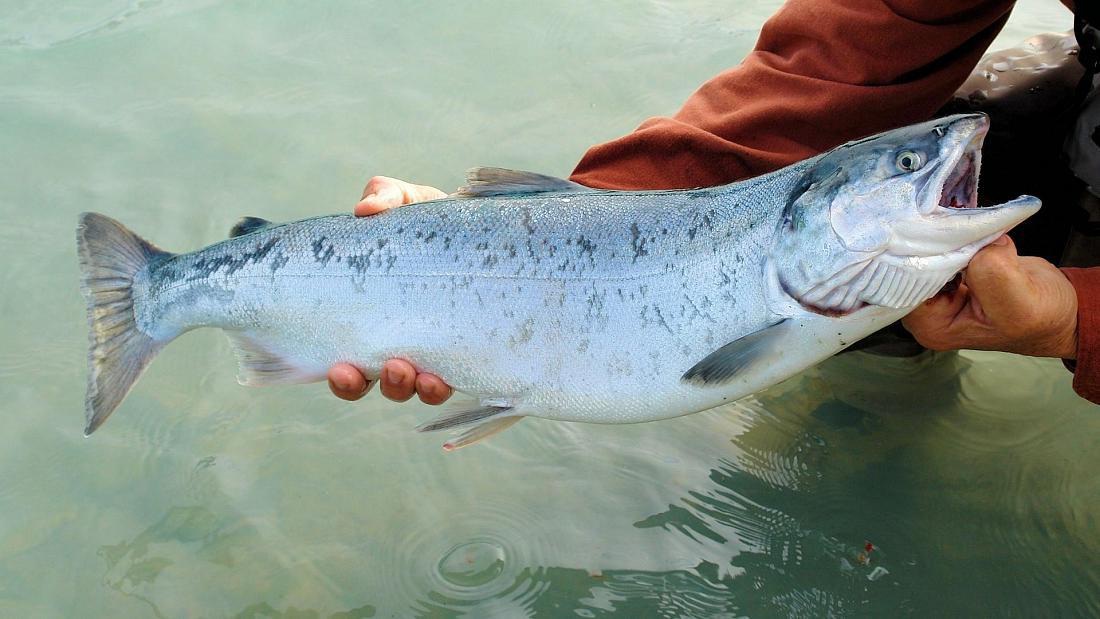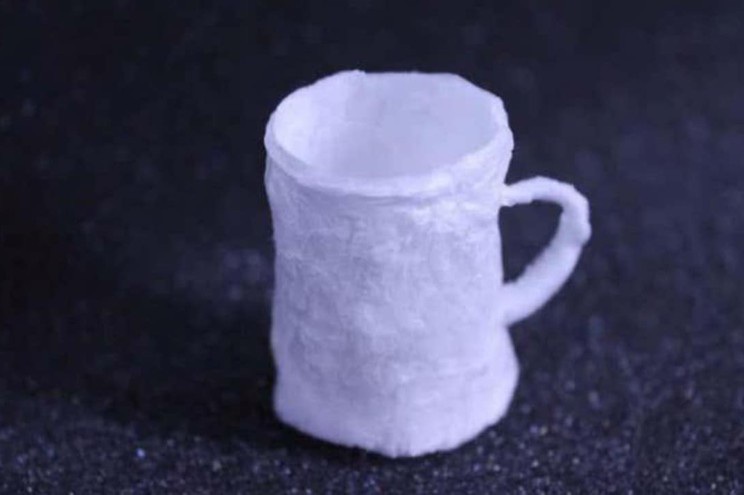Make a plastic cup from salmon sperm

Inventing eco-friendly plastic from salmon sperm
Researchers at China's Tianjin University have developed a sustainable, biodegradable plastic derived from salmon sperm and vegetable oils. This could be the most possible solution to the world's impending plastic pollution problem.
The substance is made by extracting DNA strands from the sperm of salmon and dissolving the genetic material in water with an ionomer, a polymer commonly found in adhesives, to create a flexible gel that can be molded into various forms. different. The material is then freeze-dried to form a shape.
The team's experiment created a cup with an old, wrinkled shape but did not do much harm to the environment.

The cup is made of eco-friendly plastic and the ingredients are salmon sperm.
The product looks like plastic but emits less than 5% of the carbon emissions produced during the production of typical polystyrene plastic.
"The DNA plastic we created is the most environmentally sustainable of all known plastics," said Dayong Yang, lead researcher of the study.
Dayong Yang's team found the invention demonstrated clear superiority in terms of biodegradability, production of by-products, carbon emissions, energy consumption and processing quality.
Dayong Yang's research comes in the context of scientists competing to find solutions to reduce plastic waste. In the US alone, more than 30 million tons of plastic are discarded annually, and only 8% of that is recycled.
Much of the rest ends up in landfills, while 1 to 2 million tons of plastic are left indiscriminately on land and oceans, which can then be broken down into microplastics that people and animals can consume at a later time. which do not know.
According to Infonet
- Synthetic plastic from salmon sperm and vegetable oil: Easier to recycle and decompose than regular plastic
- The sperm whale died on the English coast with a plastic sheet in his stomach
- Swallowed 22kg of plastic garbage, the mother's body was buried when she had not given birth
- The sperm whale in Indonesia has 1,000 pieces of plastic in the abdomen
- Spectacular migration of red salmon in Canada
- The ancestors of salmon have sharp teeth 20cm long
- Nearly 30kg of garbage in the belly of a fish floating on the coast
- Russia implemented a salmon protection project for future generations
- Startled with the amount of plastic you are eating into your mouth every year
- This is why you should stop eating farmed salmon
- Can catch giant salmon, like monsters in America
- Severe drought, the US carries 30 million salmon to the sea
 'Barefoot engineer' invents a pipeless pump
'Barefoot engineer' invents a pipeless pump Process of handling dead pigs due to disease
Process of handling dead pigs due to disease Radiometer
Radiometer Warp Engine: Technology brings us closer to the speed of light
Warp Engine: Technology brings us closer to the speed of light